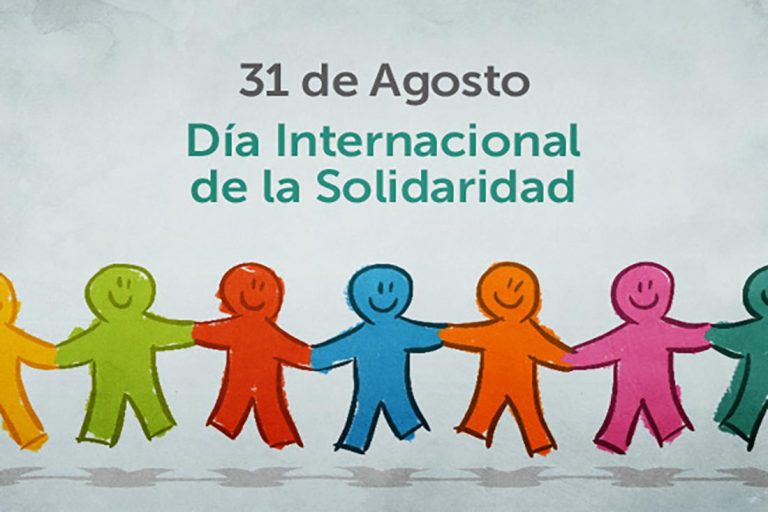August comes to an end, and with it, solidarity and its world day celebration. This date was chosen in honor of the Polish social movement Solidarity, which was represented in 1980 by the trade union “Solidarność”.
It is said that this movement was one of the many responsible for the fall of the Berlin Wall. Furthermore, one of its leaders, Lech Walesa, was awarded the Nobel Peace Prize; thanks to his work promoting the ideals of solidarity not only in his country of origin but throughout the world.
A little history
This celebration has a long history, but there is another date officially decreed by UNESCO called the International Day of Human Solidarity, which is celebrated on December 20th.
The main objective of the day declared on August 31st has not changed much since the union party was founded.
According to data on the subject, the main purpose of this celebration is based on a basic principle which is that of mutual help or being in solidarity with others.
The same Walesa, Nobel Peace Prize winner, points out that only to the extent that we all help each other and work for a common cause that provides the greatest well-being to all, to the same extent we will live in a much more peaceful, enriching and prosperous world for each nation, people or individual.
From the deep
To celebrate this day, we must first be aware of what the true needs of our community, city or country are. According to the UN itself, this day does not have a fixed program, each country or town is free to celebrate it as best suits the needs of its inhabitants.
What should not be lost sight of is that all activity must reflect a spirit of solidarity fostered by the desire for the common good.
Solidarity in times of pandemic
We Cubans have always been characterized by our capacity for solidarity and altruism on the surface. In times of pandemic and even disaster situations we have stayed close to those most in need, sharing what we have; not giving what we have left over.
The Office of the Historian as an entity that safeguards the heritage, has also educated its workers in solidarity love for everything and everyone in need.
The help to the families of children with autism spectrum disorder, the different age groups in the communities, artists and the general public linked to the projects of the Office are evidence of the solidarity and interrelation of the institution with the community.
Translated by: Aileen Álvarez García






